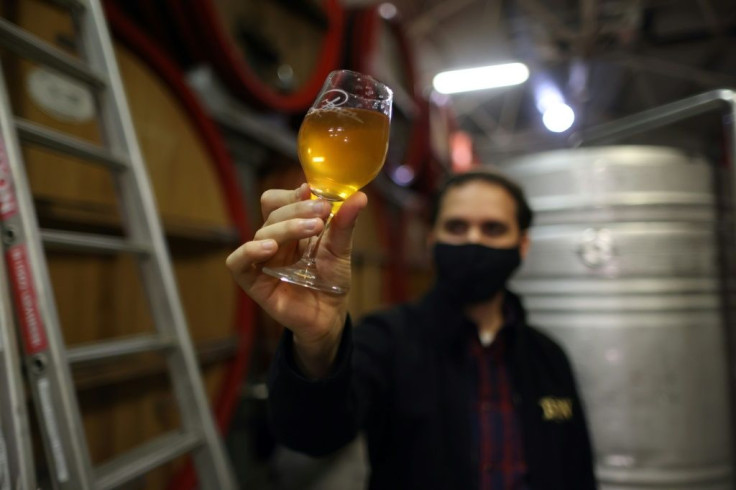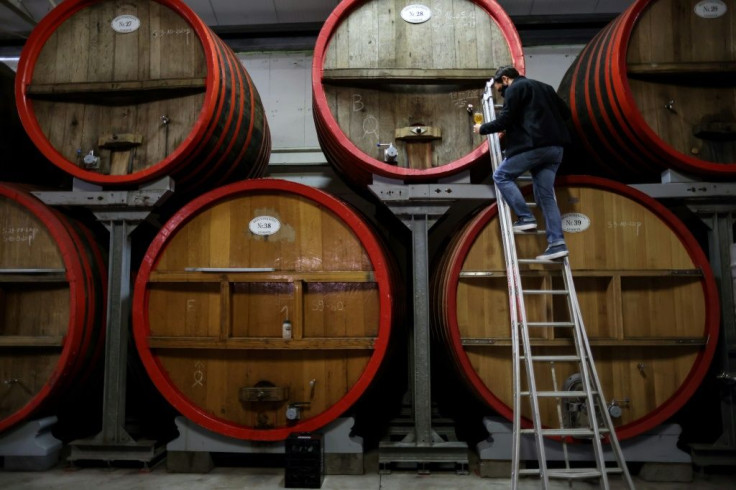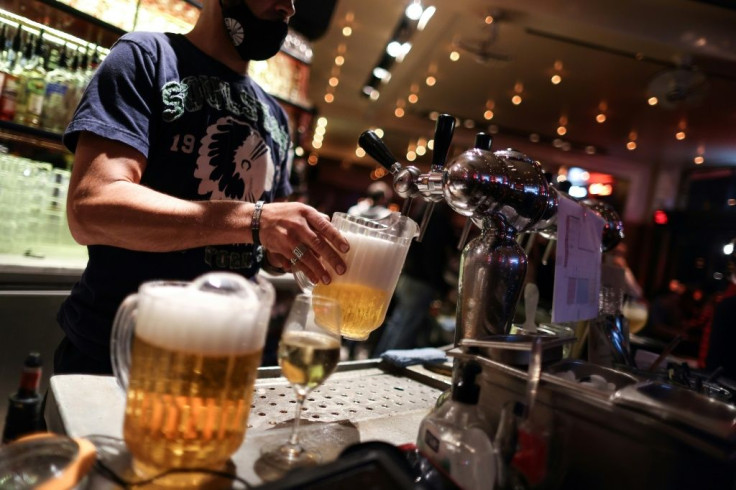Bitter 'Pils' For Belgian Brewers As Virus Strikes Again
Brewer Karel Boon had no choice but to let staff go when the beer paradise of Belgium became a hotbed for the coronavirus, but he still considers himself lucky.
The Boon Brewery sits in the Zenne river valley, the birthplace of some of Belgium's most extraordinary beers, notably the krieks or gueuze, sour tasting brews that draw afficionados from around the world -- at least before the virus struck.
Based in Lembeek, Boon's beers are generally produced through open fermentation in a process more closely resembling the production of wine.

"Our bottled beer can be kept for up to 20 years", he said, standing amongst dozens of two-metre-tall (6.6-foot) oak barrels that his family bought used from winemakers in southern France.
The long shelf life of his beers is a definite advantage in the current coronavirus economic climate.
In spring, hit by a sudden plunge in demand, Boon put several of his 20-strong staff on temporary unemployment and fears he will have to do so again as the infection rate shoots back up in Belgium, especially in the capital Brussels, just up the river.
Belgium's beer industry with its 340 brewers has been decimated by the pandemic, hurt especially hard by the April-to-June pub closures after the country saw some of the highest rates of infection in the world.

And now Belgium -- a crossroads country of 11 million, tucked between France, Germany and the Netherlands -- is seeing infection rates explode in a second wave that is making its way across Europe.
Here, the brewing sector employs some 6,500 people directly and more than 50,000 indirectly, according to the brewers' federation, which was founded in the 13th century.
After the shutdown earlier in the year, the brewers are on the verge of another dry spell, with Europe's second wave shuttering cafes and leaving behind stacks of unsold beer.

Though buried underground, the Zenne river winds through Brussels -- also home to the EU and NATO headquarters -- where authorities last week decided to close down drinking establishments for at least a month.
"The news dropped on us like a meteorite," said Yvan De Baets, co-founder of the Brasserie de la Senne (the French spelling for the Dutch-language Zenne).
Located in the Brussels district of Molenbeek, De Baets employs around 20 people and sells 90 percent of his product to cafes, especially in the capital, where hospitals are crowded with new virus patients.
De Baets said that the first shutdown probably wiped out a third of his revenue for 2020 and the latest one, which many don't see ending before Christmas, could leave just half.
A mecca for lovers of trappist ales and family-run breweries, Belgium is also the base of operations for AB InBev, the global brewing juggernaut that is based in Leuven, the home of one of the firm's best-selling beers, Stella Artois.
In July, the company, which also owns Corona and Budweiser, said that sales had plummeted globally by 17 percent in the second quarter, though this was not as bad as analysts had feared.
Nathalie Poissonnier, director general of the Belgian brewers' federation, insists that big or small, "everyone is suffering", notably because of the decline in exports to China, the United States and Canada.
Some 70 percent of the beer produced in Belgium (more than 25 million hectolitres in 2019) is destined for export. And the slowdown in international trade has not spared it.
In Belgium, the situation is all the more complex as many breweries run their own pubs, including AB InBev.
"During the confinement, some brewers saw their turnover fall by 80 percent or even 90 percent," Poissonnier said, from her federation's 17th-century headquarters on the Brussels Grand-Place.
And with daily infections skyrocketing, "many no longer have any hope of limiting the damage" after a summer of good business that made them forget, at least in part, the terrible spring, she said.
© Copyright AFP 2024. All rights reserved.





















